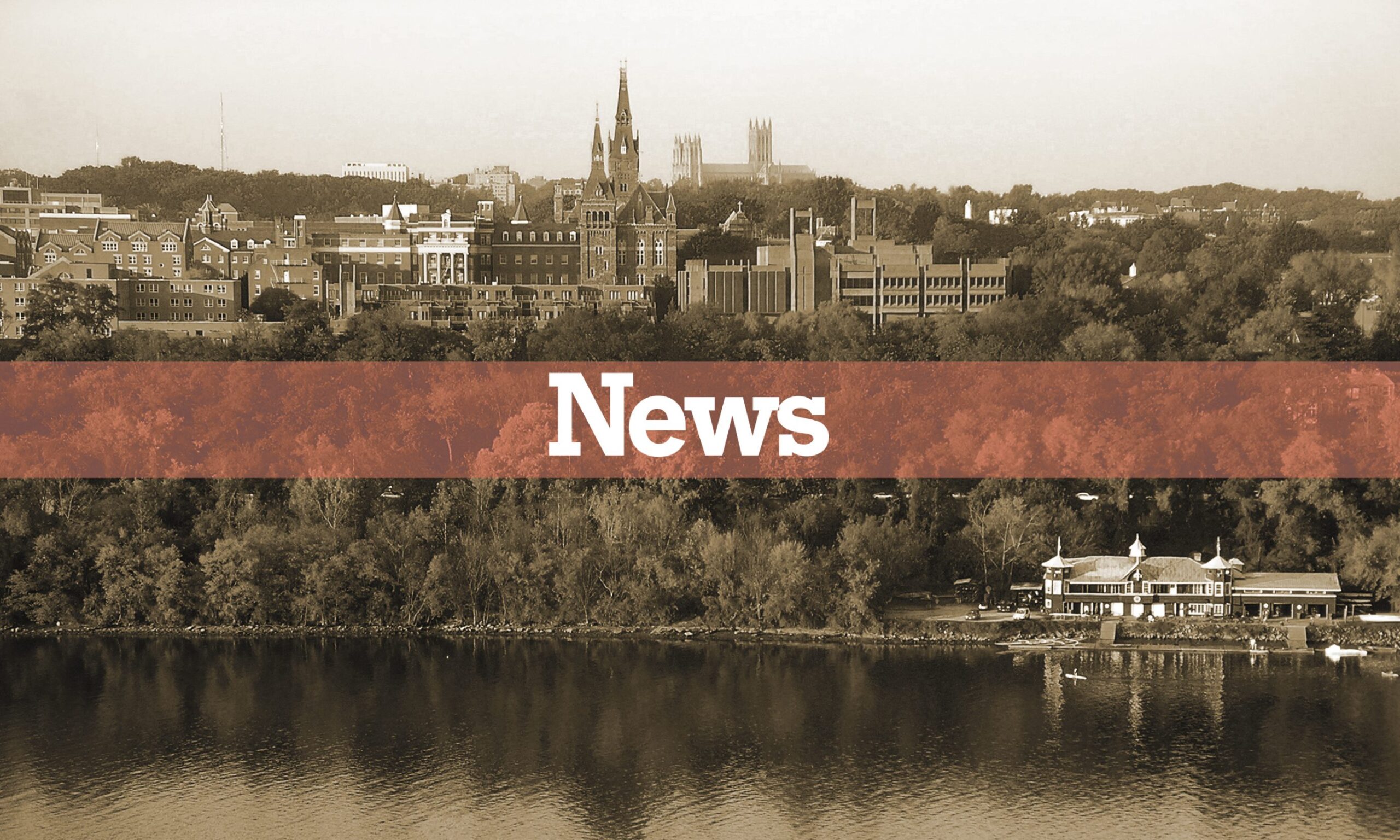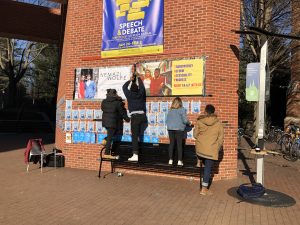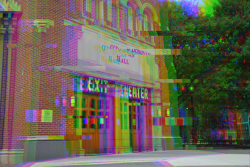On Monday, Jan. 29, the GUSA Election Commission announced a two-question referendum will be attached to the executive ballot this February. The referendum proposes structural changes to GUSA and expands protections for student participation in the senate.
In an university-wide email, the commission wrote that the student body will vote on the referendum questions on Feb. 22, the date of the next student presidential elections.
The first referendum question suggests senate representation based on class year, replacing the current system of geographic districts. It also moves senate elections for the sophomore and above classes to April. Presently, all elections are held in September.
The second question updates the language in the GUSA Constitution to include protection for student involvement. The new clause names citizenship, gender identity or expression, and ability or disability as characteristics that may not exclude students from senate participation.
This is the third time over the past two academic years that GUSA senators have proposed this class year-based restructuring for the senate. The results of the first referendum, held Dec. 1, 2016, were rendered invalid by the Election Commission due to constitutional violations.
The second referendum, which included the same student protection expansions as this year’s second question, failed April 2017 due to low voter turnout. 25 percent of the student body must vote to implement any change to the GUSA Constitution.
Speaker of the Senate Benjamin Baldwin (SFS ’19), who is the primary author of the referendum, hopes that holding the referendum vote at the same time as the student presidential elections will increase turnout this year.
“It was April, and pushing it out at that point was just very difficult,” he said of last year’s results. “Switching to class year is really not much of a controversial issue.”
Baldwin also emphasized the distinctions between each of the referendums. “This time, we changed the wording around a little bit. We removed some of the clauses that we had originally changed in the referendum last April.”
This referendum keeps the number of senate seats at 29, removing the Dec. 1 referendum’s clause to reduce the number to to 24 seats.
Vice-speaker Sylvia Levy (SFS ’18) expressed her support for the legislation, saying that class year-based representation would increase senator accountability to the student body.
“It’ll also foster a greater understanding on the part of senators of what their class needs, in comparison to what the people around them in their residence halls need, which can look really different,” she said.
Both noted the significance of changing the date of senate elections from September to April. Under the amended timeline, senators would work through the summer and into the next academic year.
“Right now, it seems like there’s all these breaks in the process and nobody’s working on anything,” said Baldwin. “We’re hoping that by getting started at the end of one year, getting all that extra time to work in September, we will be held accountable in the first place.”
A GUSA vote on holding the referendum passed 23-2 in the Senate, with one abstention. Sean Lerner (SFS ‘20) was one of the two senators that voted against the legislation. He said that he felt the referendum was irrelevant to GUSA’s goals.
“If there were any lessons learned from last year’s GUSA Senate, it was that reorganizing referendums are a potentially embarrassing waste of time,” Lerner wrote in an email to the Voice. “Inability to deliver on the part of senators is the problem, not the bureaucratic structure of the Senate.”
Nick Zeffiro (SFS ’18) also voted against the referendum. “[My] constituents, off-campus students, have little interest or investment in altering GUSA’s voting districts,” Zeffiro wrote in an email to the Voice. “Consider my nay more of a symbolic gesture that GUSA should be spending more of its time on enacting change and social progress on campus and less time on constitutional referendums to modify election districts and timelines.”
Zeffiro wrote that he would still vote yes on both referendum questions on Feb. 22.
Baldwin, however, said that he saw the referendum as a means to improve GUSA’s work on campus.
“I think one of the most frustrating things, and the student body is rightfully frustrated by this, is they look at the senate and they see that it’s a body that’s worried about petty issues, it’s a body that’s ineffective, it’s a body that’s not doing anything,” said Baldwin
He believes representation by class year will help fix these issues. For Baldwin and other supporters of the restructure, the third time may be the charm.
Voting for both referendum questions will occur via Hoyalink on Feb. 22.





